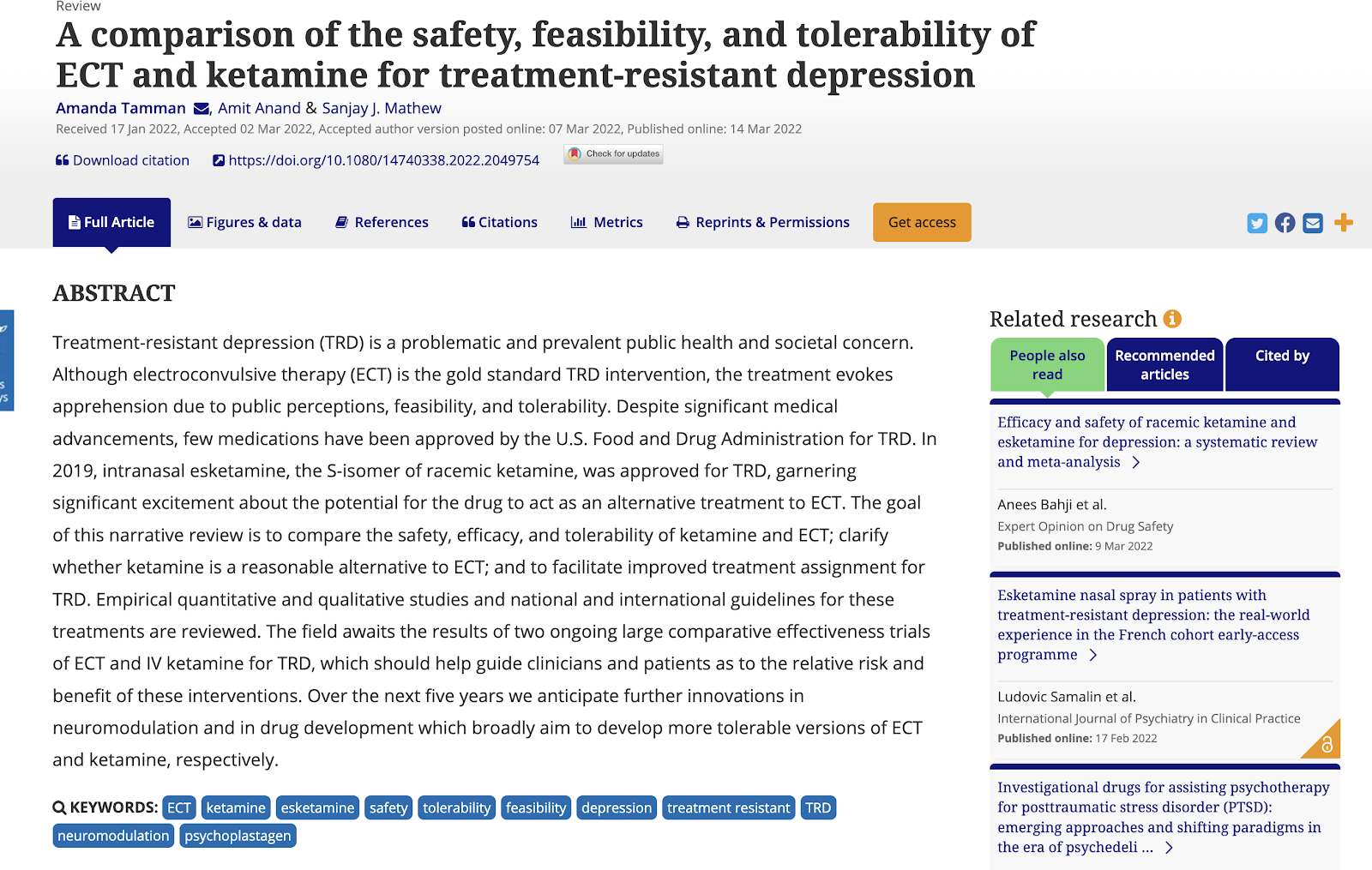ECT vs. Ketamine: New Review with Reminder of Ongoing Effectiveness Trials
Out on Pubmed, from US investigators, is this review:
A comparison of the safety, feasibility, and tolerability of ECT and ketamine for treatment-resistant depression.
The abstract is copied below:
Treatment-resistant depression (TRD) is a problematic and prevalent public health and societal concern. Although electroconvulsive therapy (ECT) is the gold standard TRD intervention, the treatment evokes apprehension due to public perceptions, feasibility, and tolerability. Despite significant medical advancements, few medications have been approved by the U.S. Food and Drug Administration for TRD. In 2019, intranasal esketamine, the S-isomer of racemic ketamine, was approved for TRD, garnering significant excitement about the potential for the drug to act as an alternative treatment to ECT. The goal of this narrative review is to compare the safety, efficacy, and tolerability of ketamine and ECT; clarify whether ketamine is a reasonable alternative to ECT; and to facilitate improved treatment assignment for TRD. Empirical quantitative and qualitative studies and national and international guidelines for these treatments are reviewed. The field awaits the results of two ongoing large comparative effectiveness trials of ECT and IV ketamine for TRD, which should help guide clinicians and patients as to the relative risk and benefit of these interventions. Over the next five years we anticipate further innovations in neuromodulation and in drug development which broadly aim to develop more tolerable versions of ECT and ketamine, respectively.
Keywords: ECT; TRD; depression; esketamine; feasibility; ketamine; neuromodulation; psychoplastagen; safety; tolerability; treatment resistant.

The full text of this article is not yet available, but I think it is worth blogging about now, so that readers know it is out there, and more importantly, know that large studies comparing ECT and ketamine are being conducted. This review likely has a very ketamine-positive stance, with a modestly negative anti-ECT stance, damning with faint praise. FYI, one of the authors discloses relationships with multiple pharma companies, including the maker of intranasal esketamine. The effectiveness study data will be interesting; hopefully, the experimental trial designs will be adequate to achieve fair comparisons.
Let's read the full text when available; in the meantime, the above bullet points are interesting.



Comments
Post a Comment